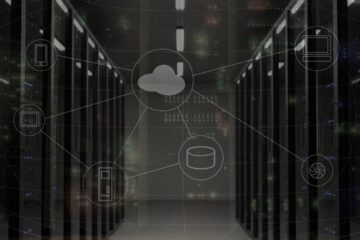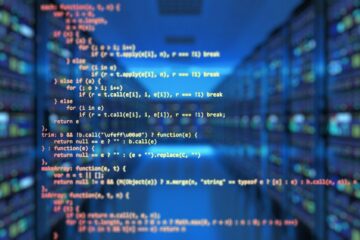![]()
Introduction:
The Ministry for Electronics and Information Technology issued “Information Technology {Intermediary Guidelines) (Amendment) Rule}” in 2018, which seeks to alter the previous intermediary guidelines that were issued in 2011. The guidelines instruct the intermediary platforms to provide legal assistance and cooperation if required by any authorised governmental agency or authority. Also, the rule makes the intermediaries responsible for providing traceability and technology-based automated tools to identify and block or screen the unlawful content for public access.
Basically the rule makes all the intermediaries to adapt due-diligence and a “Safe-harbour protection”, by providing data and medium to trace and remove the unlawful content as well as to disclose the information of the source from where such content was generated. In order to prevent misuse and encourage security for public welfare, the Ministry came up with such guidelines. Although, the act was criticized by many as it seeks to jeopardize the privacy and free-speech right by overstepping and violating the fundamental rights enshrined in the Constitution of India.
The main purpose behind amending the previous I.T. intermediary guidelines of 2011 was to prevent the widespread of fake news and information that leads to the creation of misconception in peoples’ mind and disrupts the daily routine and stability of the region. For i.e., the riots of Delhi that simply exaggerated due to fake information and content shared on ‘Whatsapp’ and as a result the atrocities were of such extent that left nothing behind and took dozens of lives.[1]
Moreover, it became a point of attraction for many as the burden of responsibility heavily shifted from government or the judiciary to the private organisations or intermediaries, as the duty to provide private information of user-generated content should be the task of a local authority and not of any private entity which uplifts the infringement of privacy to a greater extent.
Brief Analysis of IT Intermediaries Guidelines, 2018
In the Monsoon season of Parliament in 2018, a deliberate discussion was admitted on the misuse of social media platforms and spreading fake news. The Ministry of Electronics and IT accordingly made the statement indicating that the social media platforms should be made accountable under the law and responsible for providing their assistance and automated tool technology to strengthen the legal framework and duty, as it was also contested that the protection provided in the law (Section 79, IT Act, 2000) for intermediaries from liabilities in several cases should also be elaborated with vesting enhanced responsibility upon them.
The key-changes in the Intermediary Guidelines are as follows;
- The term ‘Appropriate Government’ to comply with the meaning enlisted under the IT Act was inserted in Rule no. 2 and insertion of the term ‘Critical Information Infrastructure’ was also made to mean the same as per Sec. 70(1) of the IT Act.
- The Intermediary Guidelines Rules, 2018 impose the liability on intermediary platforms to restrain the display or release of such contents which are of ‘Obscene nature’. The Draft Rules prohibit a new category of information, i.e., content which threatens ‘public health or safety’. As such Rule 3 (2) (j) has been added in the guidelines which tend to make intermediaries responsible for displaying the rules and information to the users in order to prevent them from creating such contents which possess a threat to ‘public health & safety’.
- Further Rule 3 (2) (k) has been added requiring intermediaries to inform the users as a set of rules not to publish any of such content or material that contravenes or threatens critical information infrastructure as well as in Rule 3 (2) the term ‘terms & conditions’ has been replaced by the term ‘privacy policy’.
- As per Rule 3 (4), the intermediaries are supposed to inform the user once in every month about the fact that if the provided rules and regulations are not complied with, the intermediaries have the reserve right to terminate the access and usage of their platform by such user/s.
- Amendment in Rule 3 (5), an intermediary is required to provide the information requested by a legal authority under a lawful order within 72 hours from the time when such notice was communicated to them. Also, it indicates that the intermediary should assist in tracing the originator of any false/fake information published on their platform. Any such request can be made in writing or through electronic means stating clearly the purpose of seeking such information or any such assistance.
- The newly inserted Rule 5 requires the intermediaries to respond to requests made by ‘any government agency’ whereas earlier rules read “government agencies which are lawfully authorized for investigative, protective, cybersecurity activity.” Thus, this new rule expands the scope of which agencies can seek such information.[2]
- Rule 3(7) requires the intermediaries or companies that are presently operating in India and are having more than 50-lakhs users to establish their company in India and get it duly registered under the Companies Act which will then enable the government to tax them as well as to appoint a Nodal Officer to assist in the legal framework.
- The Rule 3 (8) requires to “disable access” to the content published in any of such intermediary platforms that is of defamatory nature or against national security or falls under any clause of Article 19 (2) of the constitution, within 24-hours.
- Rule 3 (9) of the amendment requires the intermediaries to deploy such automated tool technologies and appropriate mechanism for the purpose of identifying or removing or disabling access to unlawful/fake/false information for public access.[3]
Pros and Cons of Proposed Amendments
Although the aforesaid amendment seeks to curb the wide-spread of fake news and threat to ‘public health and safety’, various issues have been pointed out with the rules such as restriction of the fundamental right of Free-speech and expression. Unreasonable requirements such as removing and automatic screening of unlawful content. Centre for Internet and Society has raised concerns with the new rules and has asked for changes in draft Rule 3(2), Rule 3(4), Rule 3(5), Rule 3(10). Following are few of the pros and cons of the aforesaid rules;
Advantages
- As rule 3 (4) ‘due diligence to be made by intermediaries’ is an innovative approach which would enable them to terminate the access in case of any false propagation of information.
- The authority given to intermediaries under rule 3 (5), will provide as an assistance for the govt. bodies to identify the original generator of unlawful content.
- The obligation on the companies to establish their office in the country under rule 3 (7), will enable the govt. to tax them and expect compliance via appointing nodal officer.
- Intermediaries will be more accountable for the content flowing via their platforms under rule 3 (8).
- Lastly, rule 3 (9) will require the intermediary platforms to counter and screen the content which deemed to be not fit for public access. i.e., fake news, false information, etc.
Disadvantages
- Users’ right to privacy will be jeopardized. True End to end encryption will not be in place anymore thus restricting users to express their opinions freely without fear.
- Appointing a nodal officer will increase the cost and compliance burden of smaller intermediaries as well as will restrict and burden small or foreign entities who don’t have enough financial assistance to act as an intermediary.
- In the absence of any clarity as to what sort of data is to be retained under the heading “Associated Records,” it violates the Right of Privacy and such retention is in contrast to the law.
- Under rule 3(9), the term unlawful content is not properly defined and hence very vague.
Intermediaries are likely to over-censor content in order to avoid criminal liability. Further, it will require a huge investment to set up AI to filter such content which will be burdensome for Start-Ups.
- Also under rule 3(9), the rationale behind extending ‘Safe Harbour’ protection to intermediaries is that they are merely passive transmitters of information, which is generated by third parties without interference or oversight of the intermediaries.
Case Laws
Shreya Singhal v. Union of India[4]
The Hon’ble Apex Court struck down Section 66A of the IT Act as unconstitutional for having a chilling effect on free speech. Further, it held that ‘actual knowledge’ requirement for an intermediary to take down content has to be read to mean either an intimation in the form of a court order or on being notified by the government and such requests must be restricted to the limitation listed by Article 19(2) of the Constitution.
Further, the court relaxed the obligation vested upon these intermediaries to the extent that now they are only required to implement the procedure laid down in guidelines only after getting prior notice or notification from governmental authorities.
Kent RO Ltd & Anr. Vs. Amit Kotak & Ors[5]
The Delhi High Court used to compel intermediaries to screen content that infringes intellectual property laws. Furthermore, the court held that requiring intermediaries to conduct such an action will change their role from a facilitator to an adjudicator. Also in doing so, the act will violate the provision of section 79 of the I.T. Act, 2000 as it declares intermediaries to scrutinize or remove the content only after prior notice of government authority.
The rule 3(9) of the guidelines vests additional responsibility to adhere compliance with the guidelines and to scrutinize the user-generated content which is in contravention to the law interpreted by the Supreme Court in a precedent case(Shreya Singhal v. Union of India).
Conclusion
From the above discussion, it can be concluded that the attempt made by the Ministry of Electronics and Information Technology possesses an effective and far-sightedness tendency as the approach towards making the web of social-internet platforms more accountable will aid in maintaining public security.
However, the act contained few unintended drawbacks which comprise as an infringement of fundamental rights because the newly inserted rules require intermediaries to report the unlawful content, which also has not been mentioned clearly in the rules that what constitutes ‘unlawful’, along with the details of the originator of the content. Thus, such an act of enquiry definitely infringes the right to free speech and privacy under the Indian Constitution.
References:
[1]Kittane, Purushotham. “Under India’s New Intermediary Rules, Fundamental Rights Take Backstage”, Oxford Human Rights Hub, 15th Mar. 2019.
[2] Verma, Ayush. “Pros and Cons of Draft Intermediary Guidelines (Amendment) Rules, 2018 for Internet Platforms”, I-Pleaders, 9th Jul. 2020.
[3] Sadana, Tanya & Rastogi, Anirudh. “Impact Of Proposed Amendments To Intermediary Guidelines”, Mondaq, 12th May 2020.
[4] (2015) 5 SCC 1
[5] 2017 (69) PTC 551 (Del)



0 Comments